No Jones, no Stones: the band’s forgotten founder
As a documentary about Brian Jones is released, James Rampton reflects on the life of the talented multi-instrumentalist whose embodiment of the Sixties spirit gave way to his untimely death

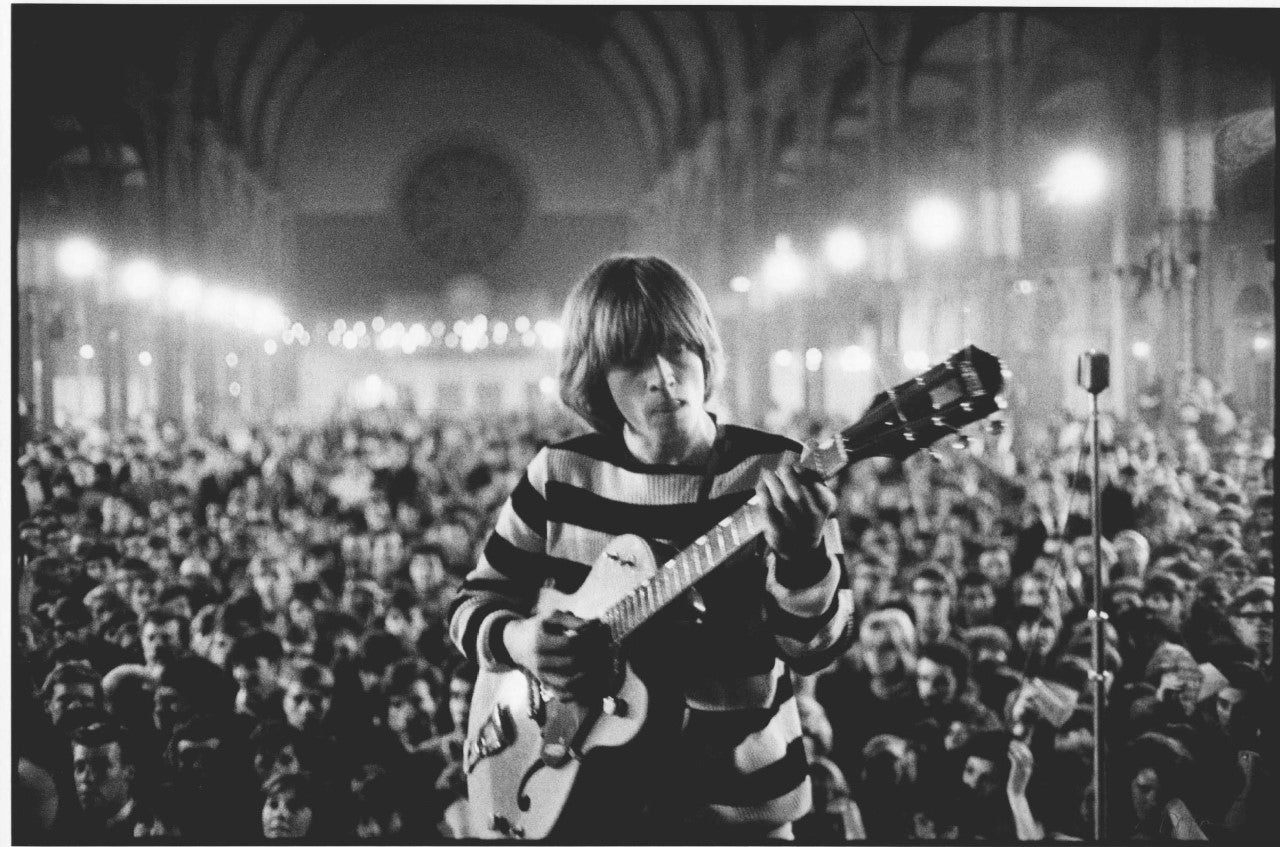
The Rolling Stones would never have even existed – let alone gone on to become the greatest rock’n’roll band in the world – if it hadn’t been for Brian Jones.
His influence was colossal. He founded the group. He recruited the other members – lead singer Mick Jagger, guitarist Keith Richards, bassist Bill Wyman, and drummer Charlie Watts – and he even came up with the band’s name.
Richards recalls that Jones thought it up on the spot while speaking to a venue owner. “The voice on the other end of the line obviously said, ‘What are you called?’ Panic!
“The Best of Muddy Waters album was lying on the floor – and track five, side one was ‘Rollin’ Stone Blues’.” Hey presto, a legendary band name was born.
In addition, Jones created the group’s signature blues-based sound. Paul Trynka, author of Sympathy for the Devil: The Birth of the Rolling Stones and the Death of Brian Jones, says: “That atonal, bluesy, harmonic structure of all the Stones’ music in fact came from Brian. The edginess of the sound – that was Brian, too.”
With Richards, Jones also developed the Stones’ unique dual-guitar approach. Dubbed “the ancient art of weaving” by Richards, it involved both guitarists playing rhythm and lead simultaneously.
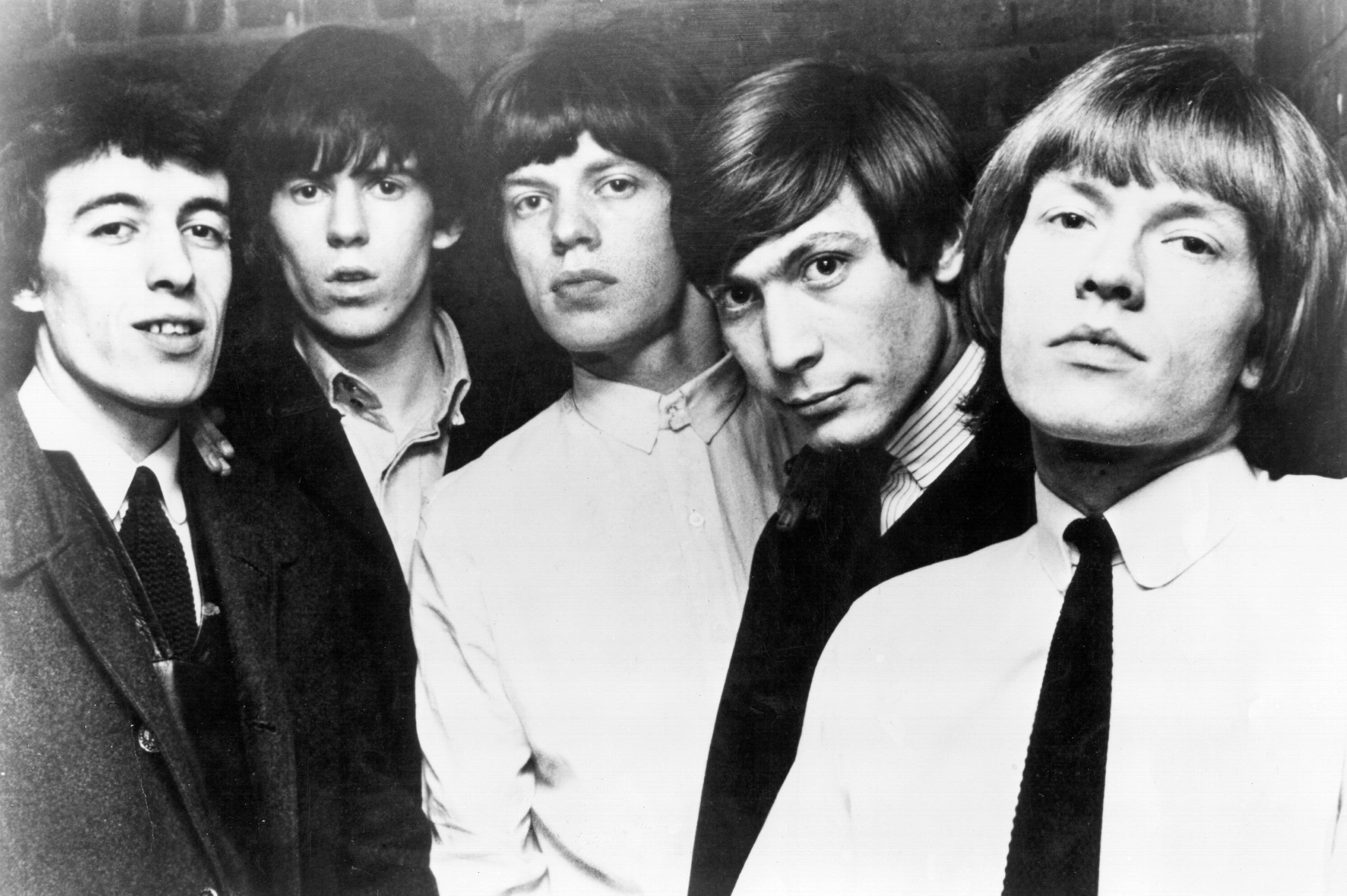
Richards recalls that they nailed it after obsessively studying albums by the blues legend Jimmy Reed. “We listened to the teamwork, trying to work out what was going on in those records; how you could play together with two guitars and make it sound like four or five.” That sound changed the face of music forever.
Jones, whose mother was a concert pianist, was also an immensely talented multi-instrumentalist. He broke the mould with his bravura playing – whether it was the harmonica on “Not Fade Away”, the slide guitar on “Little Red Rooster”, the sitar on “Paint It Black”, the organ on “Let’s Spend the Night Together”, the marimba on “Under My Thumb”, or the recorder on “Ruby Tuesday”.
“He was a brilliant musician,” Wyman comments. “He shocked everybody with the quality of his playing. We all dedicated ourselves to the band, but Brian more so than anyone else because it was his band at the beginning, and so it meant the world to him.”
In the early days, who got all the fan mail? Brian. The secretaries told me, ‘We get about 100 letters a week. Sixty of them are for Brian, 25 for Mick, 10 for Charlie and Keith and some for you’
Born and bred in middle-class Cheltenham, Jones also personified the group’s image of defiant iconoclasm and sexual and narcotic exuberance. He, more than anyone else, embodied the anti-establishment, “F-you” free spirit of the 1960s. It changed the way young people behaved and sparked no end of intergenerational conflict.
The musician, whose shaggy bowl haircut came to epitomise the rebelliousness of the Sixties, was far and away the most popular member of the Rolling Stones when they began their astounding odyssey in 1962.
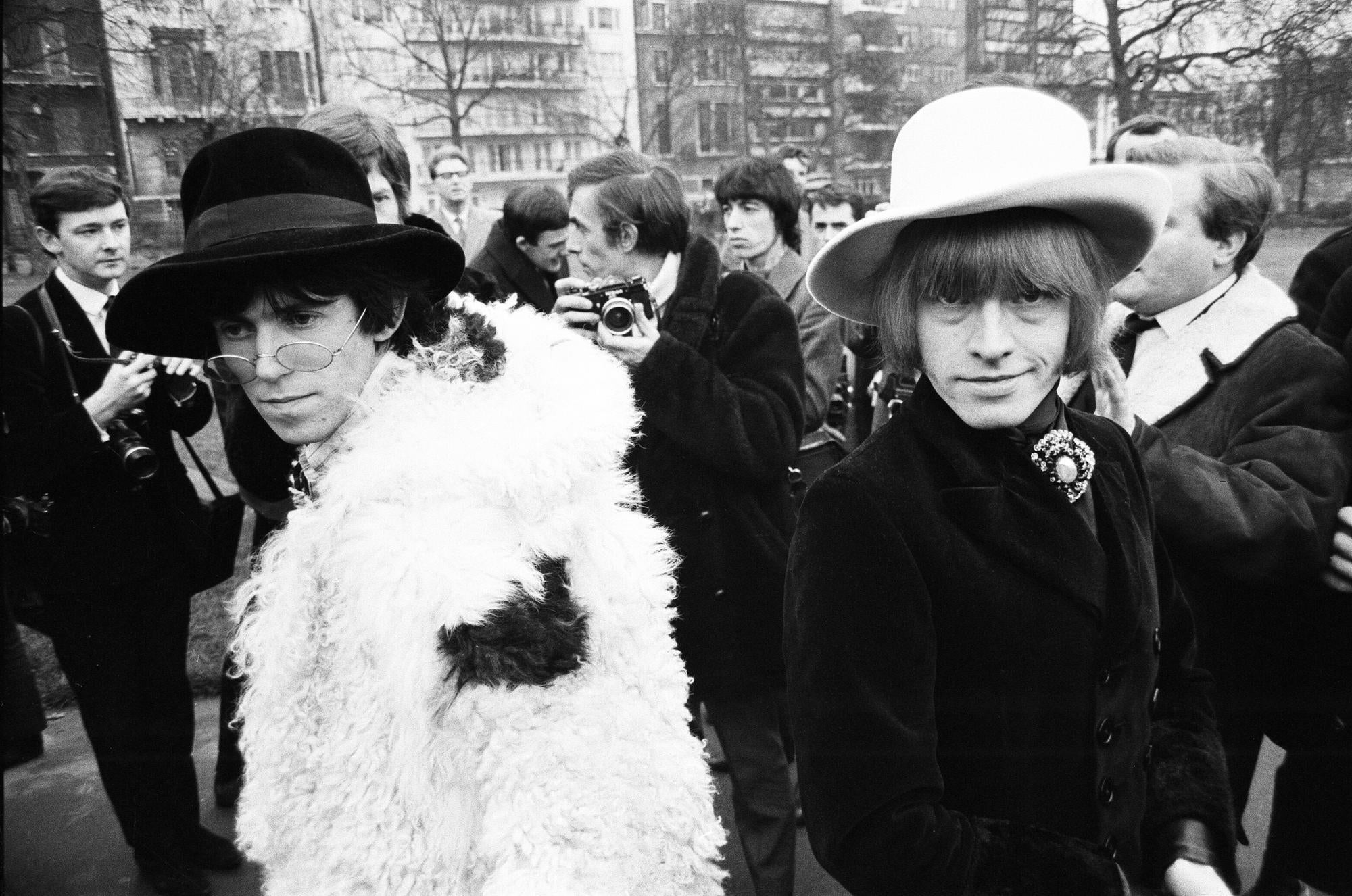
Wyman recalls: “In the early days, who got all the fan mail? Brian. The secretaries told me, ‘We get about 100 letters a week. Sixty of them are for Brian, 25 for Mick, 10 for Charlie and Keith and some for you’.”
Linda Lawrence, who was Jones’s girlfriend between 1962 and 1964 and is the mother of his son Julian, remembers that in those days the other Stones looked up to him. “Mick was always in awe of Brian. He absolutely loved him. I think he wanted to be Brian because he had all the girls and all the fan mail.”
Amazing as it now sounds, she adds: “Mick was trying really hard to get girlfriends at that time. He was very impressed by the way Brian could just draw women to him.”
Richards had an equally tight bond with Jones. “For Brian and Keith,” Lawrence continues, “it was like a brother relationship. Keith was so fascinated with the way Brian played, and Brian showed him certain guitar techniques. They were very close. They were all very together on this musical journey.”
In addition, Jones had a spellbinding effect on millions of young women all over the world. Whenever the Stones performed, Wyman says: “We were in a bloody tornado all the time. The band in 1963 played over 300 gigs. When you’d come on stage, the whole crowd would just pour forward.”
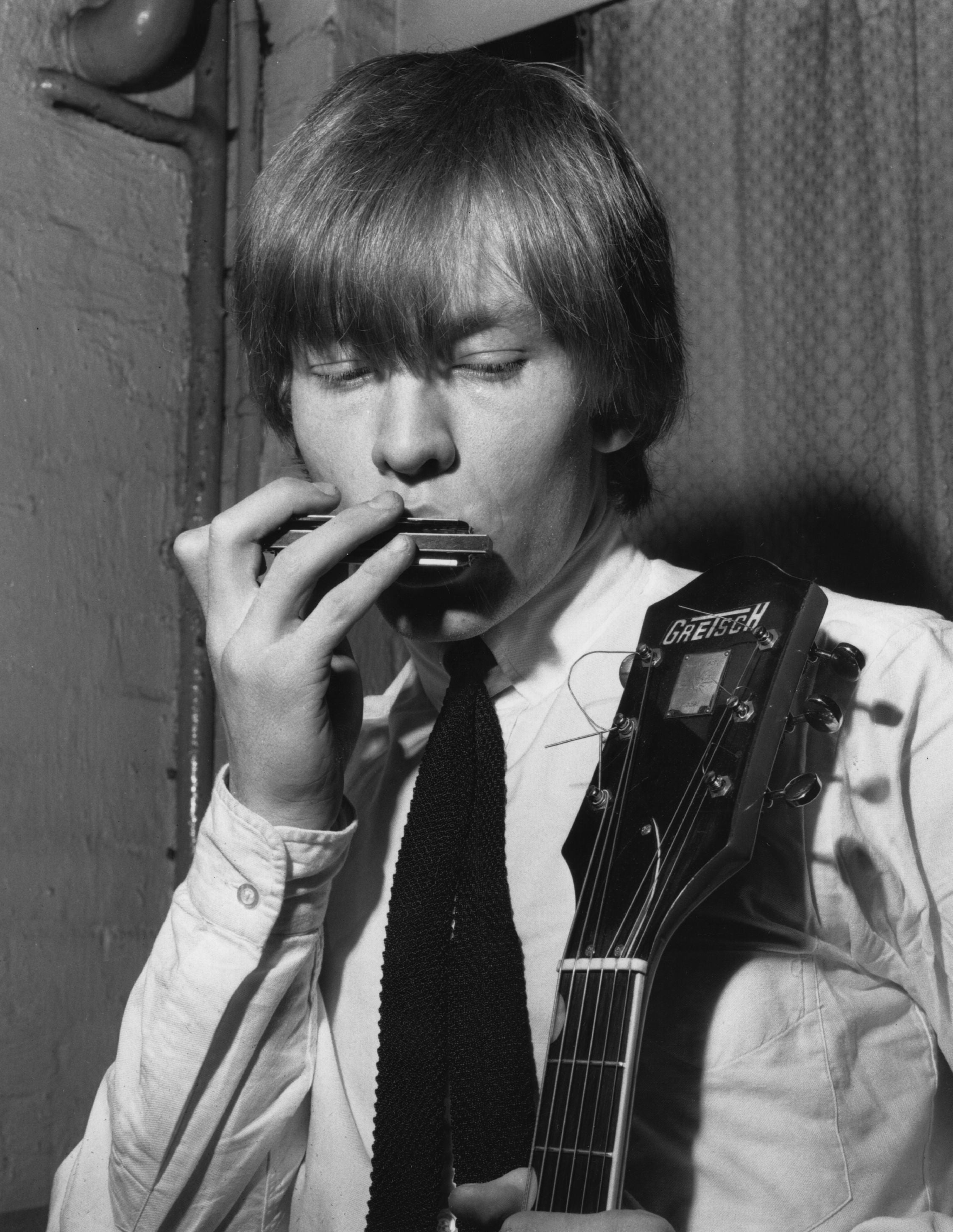
Before “Beatle Mania” was even the twinkle in the eye of screaming teenagers, “Stones Frenzy” gripped the globe. Ten thousand youngsters greeted the band when they landed in Australia in 1966. The crazed mob wrecked the airport building in a tumult of excitement.
“There was rioting wherever the Stones played,” Broomfield says. “It was an outpouring of emotion against the authorities and traditional ways of doing things.
“The way the Stones looked and dressed – their hair and sexuality – was a whole new feeling. Everybody fancied both Brian and Mick, both male and female. They had this extraordinary androgynous quality.”
And yet, more than six decades after founding the most celebrated rock and roll band on the planet – who are still going strong as they approach the age of 80 – Jones has been largely forgotten.
Brian was as popular as Mick. He was the heart and soul of the early Stones, and yet most people today haven’t even heard of him
To compound the fact that Jones has been unfairly overlooked, many people think that it was actually Jagger and Richards who started the band.
That misconception was perpetuated when in 2015 the local council put up a plaque at Dartford Station announcing that was where Mick and Keith met and “went on to form the Rolling Stones”.
Wyman objected, declaring: “Mick Jagger and Keith Richards didn’t create the Rolling Stones – they were part of the Rolling Stones like all of us. Brian Jones wanted to form a blues band, and he enlisted each member one by one. He gave the name the Rolling Stones, he chose the music and he was the leader.”
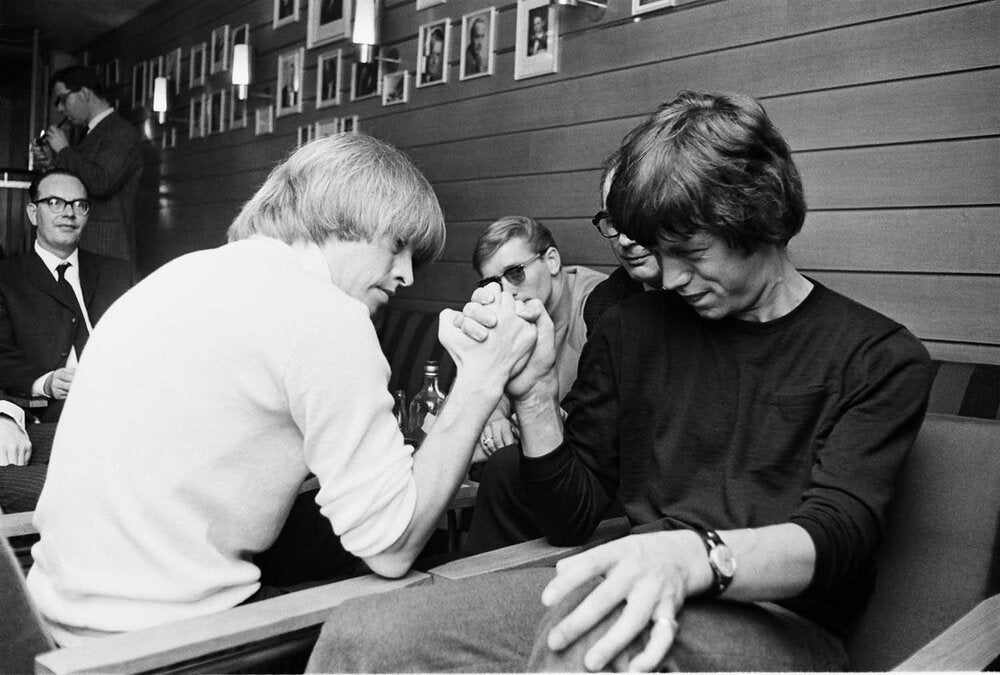
After Wyman’s complaint, council leader Jeremy Kite vowed to change the plaque. “I’ve never upset a Rolling Stone before, but we are going to put it right.”
Why, then, has Jones been unjustly neglected since his tragically early demise in 1969 at the age of just 27? Why have we forgotten the lost creative genius of the Rolling Stones? Why is he now more famous for his death than his life?
As Nick Broomfield, the director of The Stones and Brian Jones, a compelling new documentary about the doomed musician, puts it, to begin with: “Brian was as popular as Mick. He was the heart and soul of the early Stones, and yet most people today haven’t even heard of him.”
Broomfield has felt a connection with Jones since, as a star-struck 14-year-old in 1963, he bumped into the famous musician on a train in the West Country and found out that he had the very un-rock’n’roll hobby of trainspotting. “I was surprised how open and friendly he was, with a soft-spoken, middle-class accent. He said he was a trainspotter and this was his favourite line, the Great Western.
“I remember the shock when I heard he had died tragically just six years later. He seemed at the time to have the world at his feet.”
The director goes on to detail why he believes Jones has been written out of the Rolling Stones’ history. “Obviously, time moves on, and Brian’s not around to defend his corner. I also think there has been a slight lack of graciousness at the heart of the Stones in recognising Brian’s contribution.
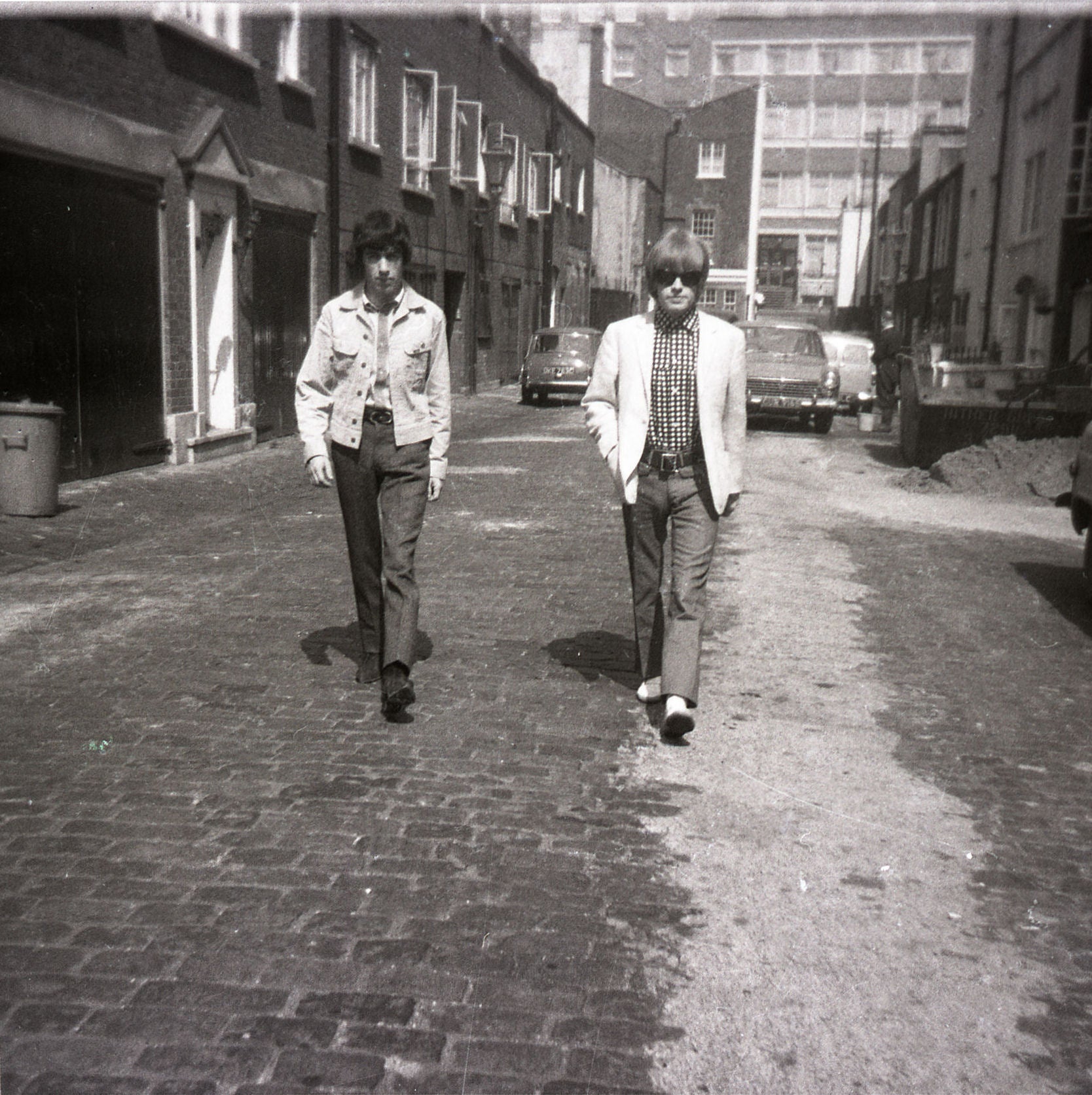
“There was barely a mention of Brian in the recent BBC series, My Life as A Rolling Stone. I always think credits are pretty easy to give out, and they make everybody happy. But maybe Brian just drove the other Stones so mad that they couldn’t face even mentioning his name again. That’s a possibility.”
The diminutive Jones could certainly be an extremely difficult character. Although often very charming and charismatic, he could also be quite sadistic.
Wyman, who retired from the band in 1993, says: “He was a fucker. He could be really horrible sometimes. He had one side of him, which was really – I wouldn’t say evil, but he was really cruel sometimes.
“There are pictures of us being photographed and Brian is on top of me, dropping cigarette ash on my head. He used to do things like that, not only to me but to everybody. He always had to prove himself.”
The bassist adds: “He was embarrassed about his size, and if he didn’t get his way, he used to get aggressive. Then he’d be all apologetic – ‘Sorry, man, I didn’t mean to stub that cigarette out on the back of your hand in the car’ – and you’d always forgive him because he was such a sweet guy.”
Bloomfield’s explanation for this appalling behaviour is that: “Brian’s self-loathing came out in the way he treated other people.”
As a personality, Jones was clearly contradictory, as we all are. “He was a complicated person,” the director carries on. “There’s good and there’s bad. There’s lovability and there’s disdain and self-hatred.”
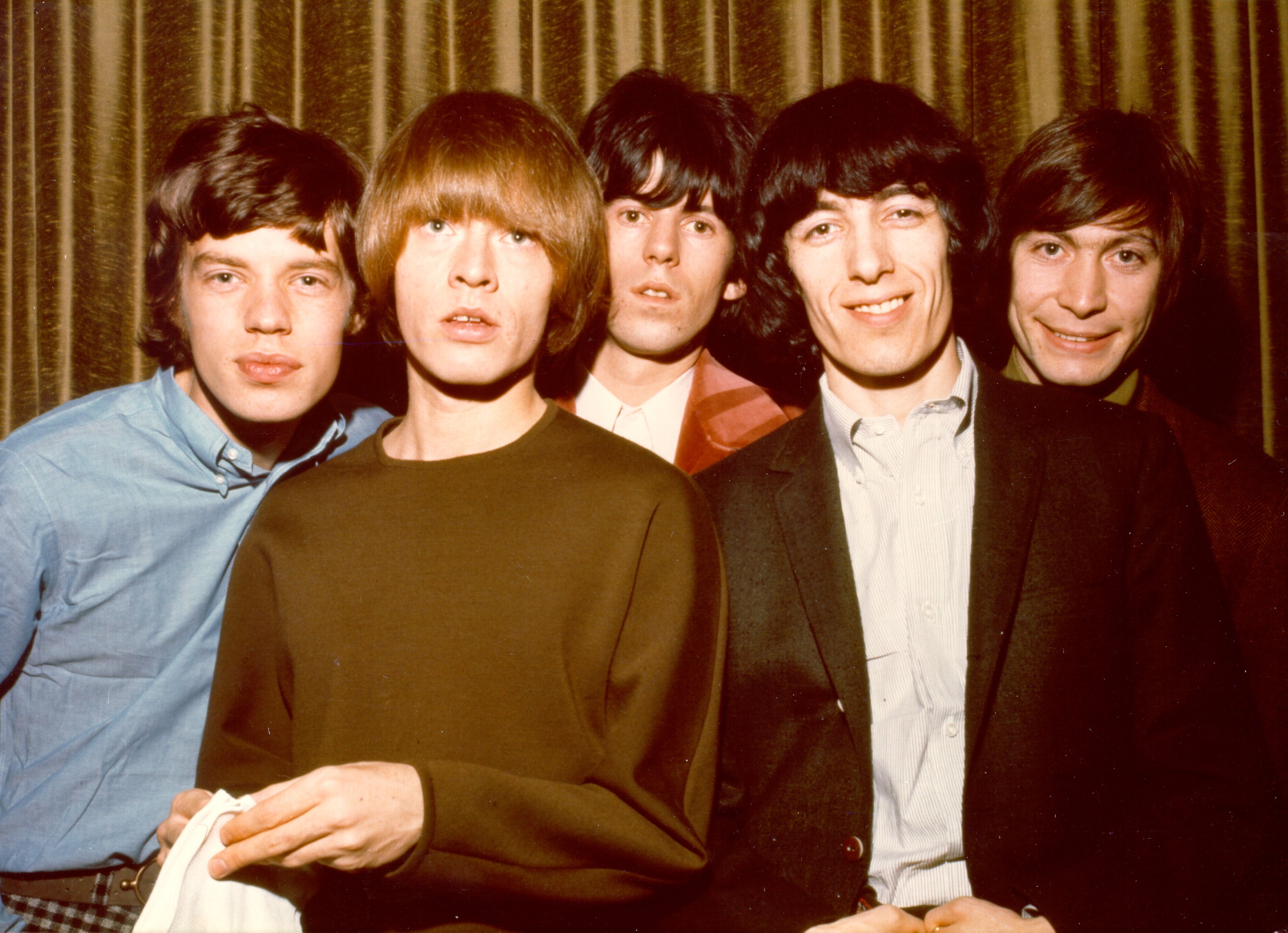
Jones also had an exceedingly torrid personal life. For his entire life, he fought his very conventional Welsh Baptist parents. Broomfield says: “Brian’s troubled relations with his parents would affect him throughout his life. His parents disapproved of his lifestyle. They wanted Brian to have a proper job, like his father.”
As a teenager, Jones was suspended twice from Cheltenham Grammar School for Boys and became a rebel with a cause; he was motivated by revolting against his parents’ values.
According to his father, Lewis: “He often used to say why should he do something he was told just because the person who was telling him was older.”
Exasperated by his unruly behaviour, his parents took the drastic step of kicking Jones out of the family home when he was just 17. How did they do it? They simply left a suitcase full of his possessions on the driveway.
Everybody went through their star trip but Brian was the only one who it changed in a really deep way, and probably not for the better. It was very difficult for him
As a result, desperately lacking self-esteem and security, Jones fell into a heartless pattern of meeting a young woman, befriending and moving in with her family, getting her pregnant and then legging it. He did that no fewer than five times in the early 1960s.
Pat Andrews, one of the girlfriends Jones abandoned with a young child, says: “The kind of person Brian was, he could never be happy. He could never have friends. He was so cynical. He just used people for his own good, and when he’d finished with them, well, he’d just throw them aside.”
By the mid-Sixties, the tide began to turn against Jones within the group. Unable to write songs, he grew jealous of Jagger, who had supplanted him as the head of the band.
Dawn Molloy, who was Jones’s girlfriend in 1964 and the mother of his fifth child, says: “Brian was no longer the leader. Mick ruled the roost as far as what they were going to play. There was also the fact that he could write music and Brian couldn’t. There might also have been a little jealousy about the fact that Mick and Keith were so close.”
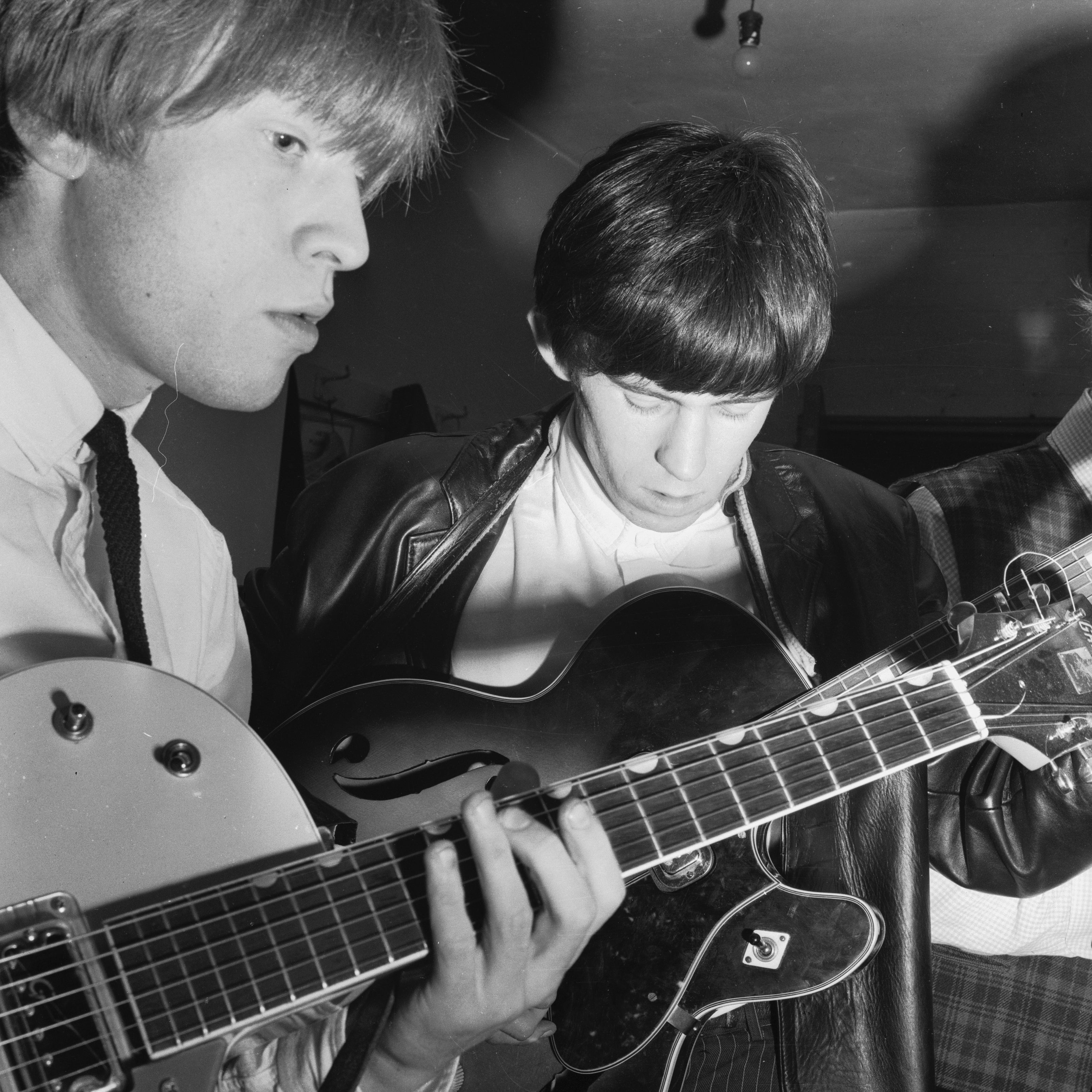
Increasingly, Jones became unable to withstand the white-hot pressure of stardom. Richards says: “Everybody went through their star trip, but Brian was the only one who it changed in a really deep way, and probably not for the better. It was very difficult for him.”
Matters only deteriorated when Andrew Loog Oldham came in as the band’s new manager and started to lay down the law. He wanted to steer the group away from the blues and towards pop.
Eager to turn Jagger and Richards into the new Lennon and McCartney, Oldham insisted that only they do press interviews. Jones, the originator of the Rolling Stones, felt more and more excluded from his own band.
Estranged from his bandmates, Jones began to lose himself in drink and drugs. Zouzou, the French singer who was Jones’s girlfriend in 1965, says: “He was doing so many stupid things all the time, and I was also taking the same shit with him: speed. We didn’t sleep for days and days and days. Once a week, we slept for one night.
“He was also having breakdowns very often and crying at night. He even wanted to have a facelift. I said, ‘You’re 24 years old. You’re not going to start now. It’s ridiculous. You should just drink a little less’.”
At the same time, Jones started to rail against the hugely popular new style of music the Stones were producing. Zouzou says: “Whenever he put on Satisfaction, he was going mad. He was telling me that Mick and Keith were writing shit and he couldn’t stand the music they were doing.
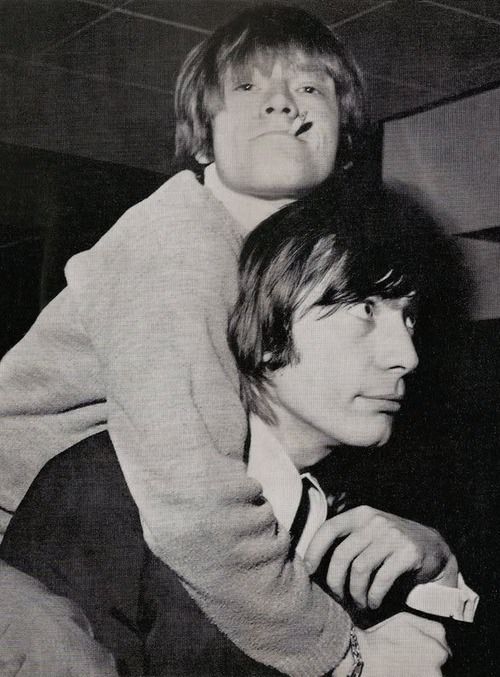
“He said, ‘It’s not the music I wanted to do. I made a group to do some blues and rock’n’roll. Look at this. It’s vulgar. It’s awful. It’s out of time. It’s nothing’.”
Off his face most of the time, Jones also became seized by a paranoid fear that his bandmates were ganging up on him. David Dalton, the biographer of Jagger’s girlfriend Marianne Faithfull, observes: “Keith said they started making fun of Brian so as not to get mad at him. Of course, for someone who’s paranoid, that is just about the worst thing you can do.”
Jones enjoyed a last hurrah with the band in 1965 when he got together with the magnetic German actress Anita Pallenberg. However, that relationship, too, ended in disaster when Jones’s galloping dissolution pushed Pallenberg to leave him for Richards.
The filmmaker Volker Schlondorff, who directed Pallenberg in A Degree of Murder and accompanied her, Jones and Richards to the 1967 Cannes Film Festival, says: “Ultimately, when she was not able to control him any longer, she just walked away to the next Stone.
“It wasn’t very far. Actually, in the Cannes hotel, it was from one room to the other. She arrived with Brian, and a couple of days later left with Keith.”
When the only woman he ever truly loved ditched him for his close friend and bandmate, Jones’s fragile world collapsed. He sought refuge in increasingly excessive drug binges.
Schlondorff says: “I think the drugs destroyed his already failing discipline, and you can’t be an artist without discipline. He probably knew that this could only lead ultimately to self-destruction.”
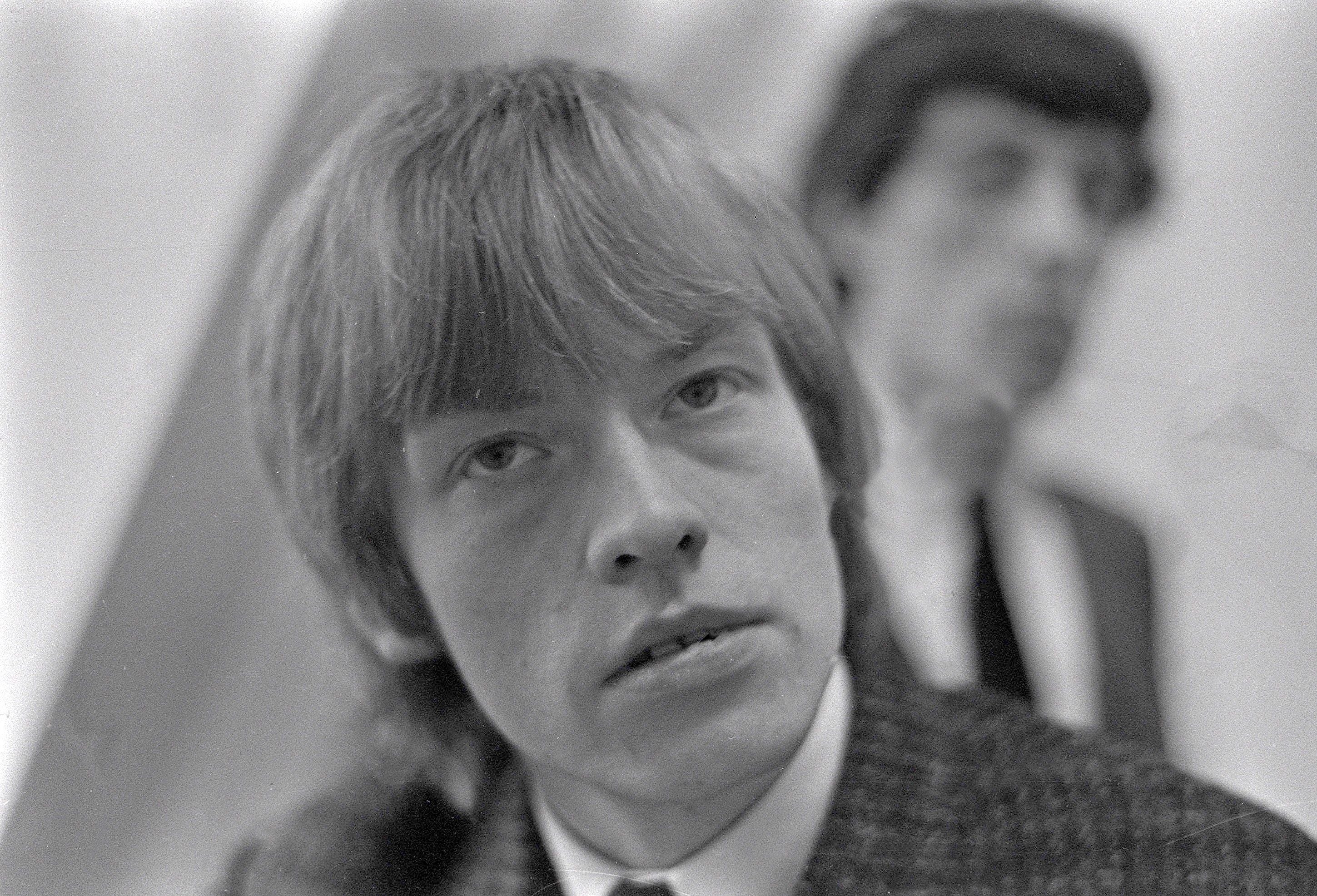
After a notorious drugs bust in 1968, Jones completely fell apart. He became utterly unreliable. Jagger says, “He was just gone. He didn’t turn up half the time, and when he did turn up, he was not in any condition to do anything.”
As a consequence, on 8 June 1969, Jagger and Richards took the very difficult decision to throw Jones out of the band he had formed. Richards says: “There was no serious way we could consider going on the road with Brian.
“So Mick and I had to go down and tell Brian, ‘Hey, you cock, you’re fired.’ The fact that he was expecting it made it easier. He wasn’t surprised. I don’t think he took it all in. He was already up in the stratosphere.”
We felt his death marked the end of the Sixties and the concert in Hyde Park was a sort of mass funeral of everything that had gone before. You just knew that there was going to be a massive change
In Dalton’s view: “A rock group is like a primitive tribe. People are often killed in tribes psychically if they’re expelled. Rock groups are like that. Their whole lifeblood comes from that bond. Once they’re of no use, that is oddly fatal. When nobody wants to talk to them or deal with them, they just go off to the woods and die.”
Sadly, that’s exactly what happened to Jones.
Conforming to the rock’n’roll cliche of “live fast, die young”, just over three weeks after being dismissed by the Stones, Jones drowned in the swimming pool at his home, Cotchford Farm in Sussex, after consuming industrial quantities of drink and drugs.
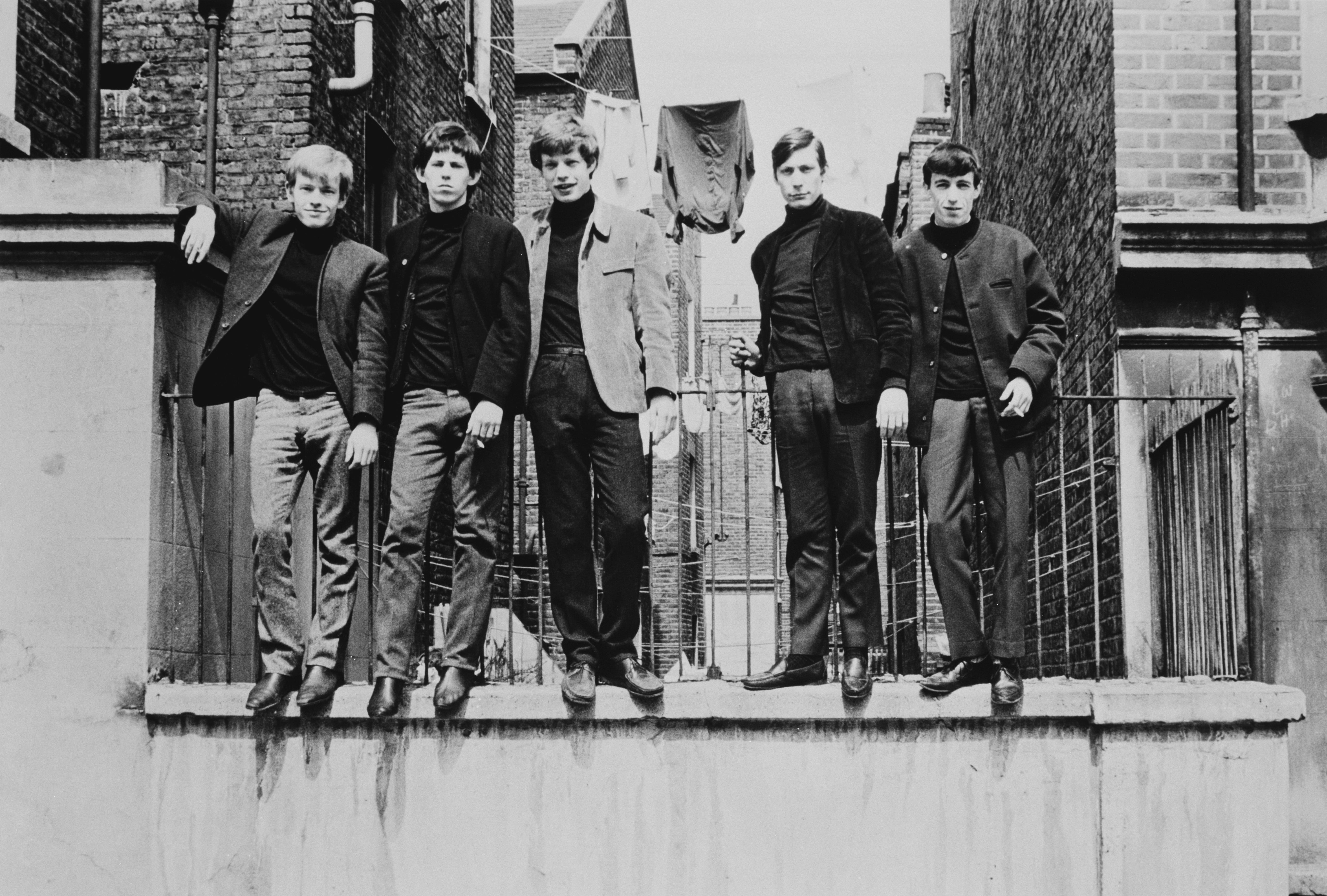
There was an enormous sense of regret within the group. According to Watts: “I felt even sorrier for what we did to him then. We took his one thing away, which was being in a band.”
Just two days after Jones’s death, the Rolling Stones held a free concert in his honour in Hyde Park. It was attended by 500,000 people, including Broomfield.
Dressed all in white, Jagger read a poem by Percy Bysshe Shelley which opened with the line: “Peace, peace! he’s not dead.” Members of the stage crew members then released thousands of butterflies which – having been cooped up in over-heated boxes for too long – unfortunately almost instantaneously died. It is hard to avoid the symbolism of that moment.
Broomfield looks back on that day. “I was just 20, and we were all incredibly shocked by Brian’s death. It was the first drug-alcohol casualty of our generation.
“We felt his death marked the end of the Sixties and the concert in Hyde Park was a sort of mass funeral of everything that had gone before. You just knew that there was going to be a massive change, and Brian’s death somehow was an emblem of that.”
Jagger closes by reflecting on this lost soul. “Brian was so sensitive to everything. There was a feeling that if anyone was going to die, Brian was going to die. I always knew that Brian wouldn’t really live that long. He just lived his life very fast.
“He was like a butterfly.”
‘Arena: The Stones and Brian Jones’ is on BBC Two at 9pm on Monday 15 May






Join our commenting forum
Join thought-provoking conversations, follow other Independent readers and see their replies
Comments